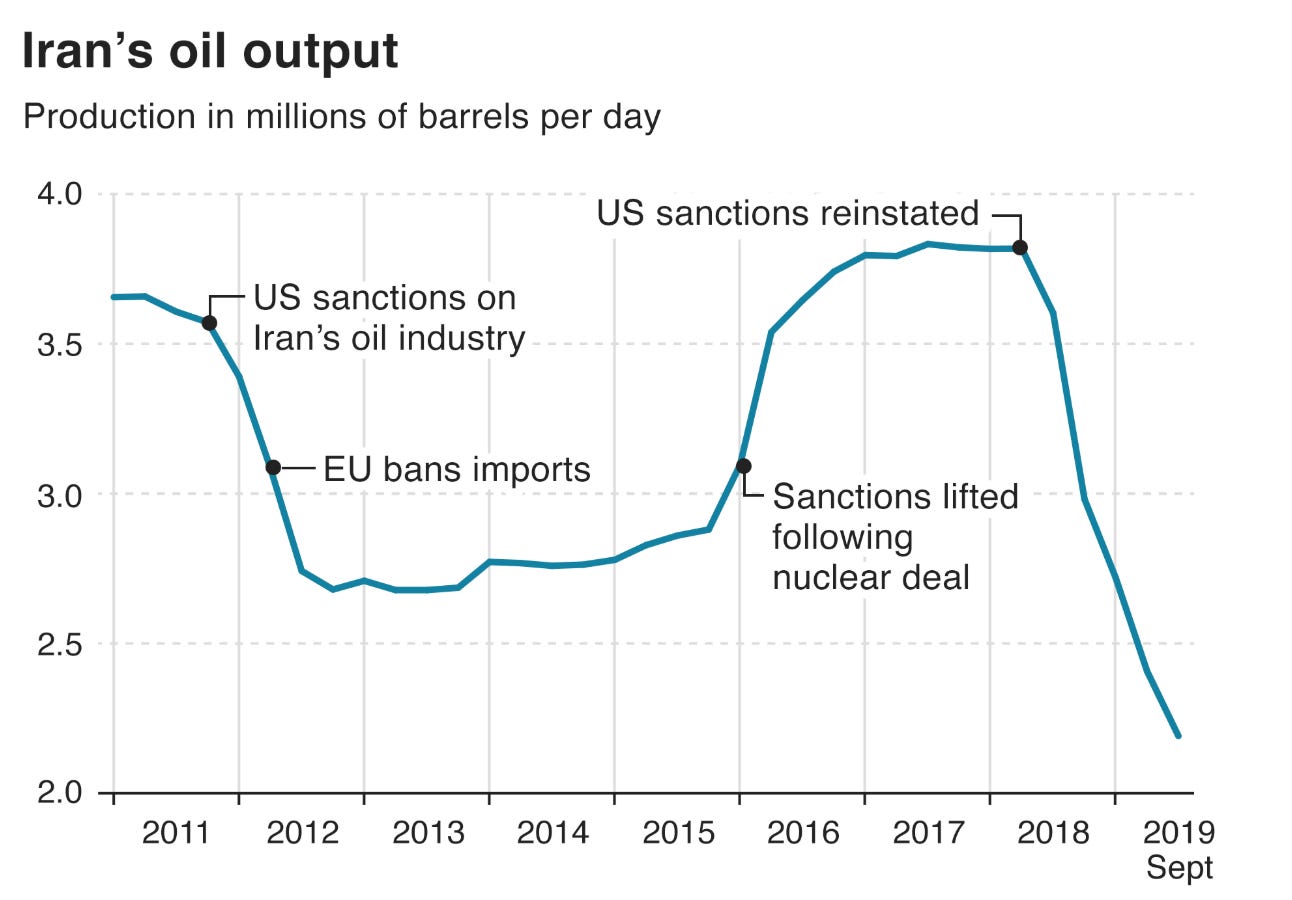🇮🇷🇹🇬 Iran and Togo Elections
Hello! Welcome to another election edition of Inside The Newsroom, where we’ll dig into the major elections held in Iran and Togo. In Iran, the lowest voter turnout in four decades was recorded, as the coronoavirus outbreak took hold of the country, and led to a landslide victory for hardliner conservatives. And in Togo, the 52-year Gnassingbé family dynasty is set to continue for another five years, amid allegations of fraud. Enjoy 🤓
Iran and Togo 👇

Iran Election, Meet Coronavirus
Iran’s legislative elections couldn’t have come at a worse time, not for political reasons per se, but because of the recent outbreak of the coronavirus. Iran confirmed its first case last Wednesday, and the number of cases has since exploded to 61, including 12 deaths, a mortality rate far greater than any other country, including China. The perceived threat is so great that Iran has shut down schools, universities and cultural centers in 14 provinces, and its neighbours have shut their borders with the country. As a result, just 43 percent of eligible Iranians voted, the lowest since it became an Islamic republic in 1979.
While results continue to come in, it’s clear that hardline conservatives will dominate the 290-seat chamber. In the nation’s capital Tehran, 75 percent of voters chose not to vote, a sign of extreme dissatisfaction with the government after mass protests over deteriorating economic conditions and the shooting down of a Ukrainian passenger airplane, which for days Iran denied but later confessed to. Regardless of the legislative powers of Iran’s parliament — known as the Islamic Consultative Assembly — more growing tension is expected as the bolstered hardliners will try to move away from Iranian President Hassan Rouhani’s modernized agenda focused on opening up his country’s economy to the world through trade and tourism. Rouhani won presidential elections in 2013 and 2017, but the next election in 2021 might be his toughest to survive.
U.S. Sanctions Have Shredded Iran
When president Rouhani signed the nuclear deal with the U.S., UK, France, China, Russia and Germany — also known as the P5+1 — in 2015, Iran benefited from a sharp spike in GDP, but has tanked since Donald Trump withdrew the U.S. from the deal in 2018 and implemented harsh economic sanctions.
Chart credits: BBC

Trump’s sanctions, which bar U.S. companies from trading with Iran, but also any foreign firms or countries that deal with them as well. They’ve caused foreign investment to dry up and have hit the country’s oil exports, which have directly led to a recession since the middle of 2018, with few signs of hope.

On top of that, Iran’s currency had never been weaker toward the end of 2018, after the Iranian rial plunged almost 400 percent in value, but has rebounded modestly over the past 18 months. The decreased value of the rial led to inflation reaching an insane 52 (!!!) percent in 2019, but has since come down to a more moderately insane 26 percent.

The election results point to increased opposition to the nuclear deal, which can only be a bad thing for the U.S. and the rest of the world. Here’s a little explainer on what could happen next…
Togo Election Overshadowed by Fraud Claims
Another country, another election riddled with accusations of fraud. So far this year we’ve had the F word used in Cameroon and Azerbaijan, and is an all too common trend around the world. Togo’s incumbent president Faure Gnassingbé won a fourth term, after taking over after the death of his father Gnassingbé Eyadema, who ruled for 38 years, according to preliminary results from the country’s electoral commission. Gnassingbé received 72 percent of the vote. Opposition leader Agbéyomé Kodjo received about 18 percent, and accused the authorities of widespread fraud. The former prime minister and current head of national assembly, Kodjo alleges that the authorities set up fake polling stations, ballot stuffing and getting people to cast multiple votes in Gnassingbé's favour.
Half a Century of Dynastic Rule
Few countries around the world have been ruled by a single family, let alone for as long as Togo has been controlled by the Gnassingbé dynasty. Togo has had just four permanent presidents since it gained its independence from France in 1960, and two of them — father and son Gnassingbé Eyadéma and Faure Gnassingbé — have ruled the west-African state since 1967.
The elder Gnassingbé was part of two successful military coups: In 1963 where he’s widely regarded as being behind the assassination of then president Sylvanus Olympio, and in 1967, when he became Togo’s third president. His rule “rested on repression, patronage, and a bizarre leadership cult”, according to a 2018 study on the relationship between father and son, which has been an authoritarian dictatorship responsible of killing hundreds of their own people.
After this weekend’s result, Faure Gnassingbé has another five years of power, and last year implemented constitutional reforms that would allow him to rule until 2030. There seems to be no end to Togo’s systemic dictatorial rule in sight.
Like Me. Please
Before you read on, please like and share this edition of Inside The Newsroom by clicking the ❤️ below the title, and clicking the button below. That way I’ll appear in clever algorithms and more people will be able to read. Cheers.
Next elections…
February 29: Slovakia
March 1: Guinea, Tajikistan
March 2: Guyana, Israel
Past elections…



